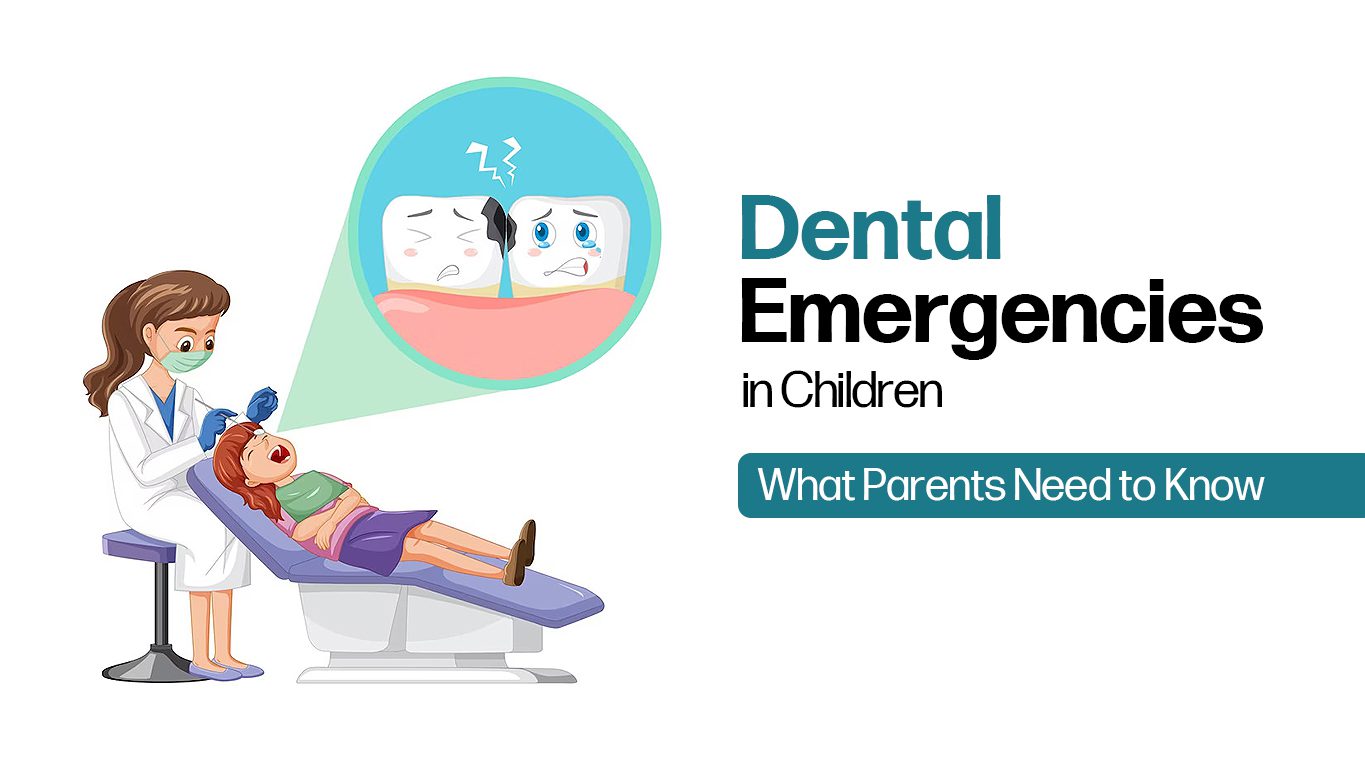
Your child’s safety and happiness are priorities number one as a parent. You take a lot of precautions to make sure they’re healthy and safe, but accidents may happen anywhere, including their mouth. Dental emergencies in children can be frightening and overwhelming for both parents and kids. Being prepared to handle such situations can be crucial in saving your child’s tooth or minimizing further harm. This article will discuss more about dental emergencies in children and what you should know as a parent.
Types of Dental Emergencies in Children
-
Toothaches
Toothaches are a prevalent dental issue that children encounter. They may arise due to several factors, including tooth decay, gum disease, or injury. In case your child experiences a toothache, rinsing their mouth with warm salt water can alleviate the discomfort. Additionally, applying a cold compress to the cheek can help reduce swelling and alleviate pain. If the pain persists, scheduling an appointment with your child’s dentist is recommended.
-
Chipped or Broken Tooth
Chipped or broken teeth are a common dental emergency in children, especially those who are active in sports or other physical activities. If your child chips or breaks a tooth, rinse their mouth with warm salt water and apply a cold compress to their cheek to reduce any swelling or pain. Try to locate any broken tooth fragments and bring them to your child’s dentist. Depending on the damage severity, the dentist may repair the tooth with bonding material or recommend a crown or other restoration.
-
Lost Filling or Crown
If your child’s dental filling or crown falls out, rinse their mouth with warm salt water and try to locate the missing restoration. Bring the restoration with you to your child’s dental appointment. You can use cotton wool to apply clove oil to the affected area for temporary relief If your child experiences any pain or discomfort.
-
Knocked Out Tooth
If a tooth gets knocked out, it constitutes a dental emergency that demands prompt attention. In such a scenario, locate the tooth and rinse it delicately with water, being cautious not to touch the root of the tooth. Attempt to put back the tooth into the socket if feasible or preserve it in a cup of milk or saliva to retain its moisture. Following that, take your child to the dentist or emergency room without any delay.
-
Bleeding Gums
Gums that bleed can indicate gum disease or other oral health complications. If your child’s gums are bleeding, rinsing their mouth with warm salt water and administering a cold compress to their cheek can mitigate any discomfort and swelling. It’s advisable to schedule an appointment with your child’s dentist promptly to determine the cause of the bleeding and obtain suitable treatment.
-
Object Stuck in Teeth
If your child has an object stuck in their teeth, try to remove it gently with dental floss. Avoid using sharp or pointed objects that could cause further damage. If the object cannot be removed with floss, contact your dentist for assistance.
Diagnosis of Dental Emergencies in Children
Until you can get your kid to the dentist or the emergency department, there are a few things you can do to make him or her more comfortable. Please try to locate your child’s knocked-out tooth and bring it with you in case of such an emergency. Rinse the teeth gently with water if necessary. Don’t try to clean the teeth or remove any debris. Avoid touching the tooth’s root, as doing so could cause irreparable damage. Re-implant the tooth if at all possible, and have your child bite down on a clean cloth to keep it in place while you do so. Put the tooth in a cup of milk or salt water if you can’t put it back in its socket.
In case of pain or swelling, apply a cold compress. It will help alleviate the pain. You can also use recommended over-the-counter drugs.
What to Do After a Dental Emergency- Prevention Tips for Parents
To prevent future dental emergencies, taking preventive measures after a dental emergency with a child is crucial. Parents can achieve this by implementing the following tips:
- Schedule regular dental check-ups for your child to detect any issues early and avoid bigger problems.
- Help your child adopt good oral hygiene habits at home by encouraging them to brush their teeth twice a day, floss daily, and consume a healthy diet.
- Avoid giving your child sugary snacks and drinks, as excessive sugar consumption can lead to tooth decay and other dental complications.
- Educate your child on proper dental care practices to avoid future dental emergencies. This includes demonstrating correct brushing and flossing techniques and educating them on foods that are beneficial for their teeth.
Contact Our Emergency Dentist at Bayswater Dentist for Children Dental Emergencies
As a parent, it is essential to be aware of the potential dental emergencies that could occur in children. A timely diagnosis and treatment can help prevent long-term issues with your child’s oral health. While we cannot anticipate all possible scenarios, educating yourself on common signs and symptoms, along with understanding proper first aid protocols and knowing when to seek out professional care, are vitally important steps for avoiding more severe consequences from incidents resulting in trauma or injury to the teeth and mouth.